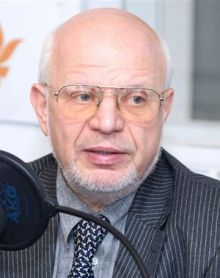Mikhail Fedotov, head of Russia’s Union of Journalists, has been appointed chairman of the Presidential Council for Facilitating the Development of Civil Society and Human Rights Institutions. The relevant decree was signed by Russia’s president Dmitry Medvedev on October 12. In this post, Fedotov replaced Ella Pamfilova, who resigned in late July this year.
The top priority issues for the Human Rights Council are de-Stalinization of public consciousness, and court and police reforms. This was stated in an interview to Echo of Moscow, given by professor Fedotov, Ph.D., Doctor of Law, who has worked in the media for many years. He has been a correspondent for such dailies as Vecherniaya Moskva (Evening Moscow), Sotsialisticheskaya Industriya (Socialist Industry), the magazines Lesnaya Nov (Forest News) and Na Boievom Postu (Keeping the Watch), and also co-presided the Grand Jury. According to Fedotov, the first meeting of the Council is scheduled for next week.
Fedotov’s appointment was welcomed by the Russian political circles as well by human rights advocates. Lyudmila Alekseeva, Chairperson of the Moscow Helsinki Group, considers Fedotov to be a man of firm democratic beliefs. “Fedotov is suitable for this difficult job, which involves constantly being between two barely compatible worlds, the world of officials and that of the democratic public,” said Alekseeva, as quoted by infox.ru.
“This is a very apt appointment. I will be happy to cooperate with the Council under Fedotov’s presidency,” the ombudsman Vladimir Lukin told Interfax. According to him, Fedotov is capable of organizing all the independent thinkers in the Presidential Council. “Fedotov is a man with a colossal expertise in all the spheres essential for the chairman of this council. He is a man of uncontested democratic beliefs, which is very important for working in the Council. He has co-authored one of the most democratic Russian laws, the Law ‘On Mass Information Media,’” reminded the ombudsman.
Sergei Popov, Chairman of the State Duma Committee for Public and Religious Organizations, also qualified Fedotov’s appointment as a rather apt choice. In his opinion, Fedotov, due to his “erudition and professionalism,” can “considerably contribute to the implementation of the Council’s projects.”
Sergei Mitrokhin, leader of the Yabloko Party, remarks that Fedotov is an “independent, honest, and very respectable person and professional, who is well aware of the problems of civic society and mass media.” According to Mitrokhin, Fedotov is a worthy successor to Pamfilova, who held the post earlier.
Leonid Gozman, co-chairman of the Pravoe Delo (Right Cause) opposition party, also supported this choice. “If all presidential appointments were like this one, we would have long been living in a different country. It is not frequently that I completely approve of the president’s choice,” remarked Gozman.
Vladimir Ryzhkov, a politician, notes that “Fedotov has long been known as an adamant champion of the Constitution, human rights, and democracy. Besides, Fedotov, who has been minister of the press, knows the ins and outs of the state machinery perfectly and has a huge experience of organization work.”








